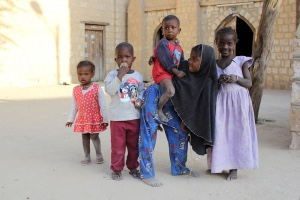
Geneva/Bamako: There have been some improvements in the security and human rights situation in Mali, a UN human rights expert said today, but he warned this should not conceal the serious challenges that lie ahead. He urged the Malian authorities to open up more civic space and democratic debate.
“For the first time since the beginning of my visits in 2018, I noted a tangible improvement of the security situation, the situation of internally displaced persons (IDPs), the human rights situation as well as endogenous peace dynamics, especially in Central Mali,” the UN Independent Expert on the situation of human rights in Mali, Alioune Tine said at the end of a nine-day official visit. Tine will submit his annual report to the Human Rights Council in March 2022.
The number of human rights violations and abuses decreased by 27.10% during the last quarter of 2021 as documented by the United Nations Multidimensional Integrated Stabilization Mission in Mali (MINUSMA) – A United Nations peacekeeping mission in Mali which was established on 25 April 2013 by United Nations Security Council Resolution 2100 to stabilise the country after the Tuareg rebellion of 2012.
Similarly, according to the Protection Cluster, a 29.75% decrease in the number of protection incidents was recorded between November and December 2021. The Protection Cluster noted a significant drop in human rights violations at the end of the year in general, with the exception of violations of the right to life, where the greatest number was recorded in the last quarter of 2021.
One indicator of the improved security situation is the recent decrease in the number of IDPs and intercommunal conflicts. According to the Displacement Tracking Matrix (DTM), the number of IDPs decreased by 13% from 401,736 in September 2021 to 350,110 in December 2021. In the Gao region, the number of IDPs dropped by almost half (49%) between September and December 2021. Reportedly, this decrease is explained in particular by the gradual pacification of certain localities in the central and northern regions of the country.
However, the tangible improvements in the situation should not conceal the serious security and human rights challenges that must be addressed by Mali and the international community to consolidate the progress made on the ground. On the security front, violent extremist groups, including Jama’at Nusrat al-Islam wal Muslimin (JNIM), the Islamic State in the Greater Sahara (ISGS) and other similar groups, as well community armed groups known as self-defence groups, continue to attack, kill and abduct civilians, Tine said in a statement, adding violent extremist groups were enforcing a strict interpretation of Sharia law.
“The most serious social bomb is looming on the horizon with the collapse of the education system,” he said, pointing to UN figures, which showed 320 schools closed in 2021, affecting nearly 100,000 students. Overall, the number of schools closed due to insecurity has increased significantly from 1,344 in January 2021 with 403,000 students affected to 1,664 schools in December 2021 with 499,200 students affected.
“In addition, school closures have reportedly contributed to an increase in early marriages and the rural exodus of girls, a phenomenon that increased the risk of sexual exploitation and abuse for these girls. Insecurity continues to have a considerable impact on the situation of women’s fundamental rights, with the disturbing recurrence of cases of gender-based violence,” the UN human rights expert said.
During his visit, Tine met with Malian authorities, civil society and victims’ associations, non-governmental organisations, diplomats and the United Nations.
The UN expert expressed deep concern about the shrinking civic space, including the role of the media, and the political opposition. “This negative climate has led several actors to self-censor out of fear of reprisals from the Malian transitional authorities and/or their supporters,” he said. “I am particularly concerned about the risk of confrontation and violence between supporters of the Malian transitional authorities and opposition parties.”
Tine called on the Malian transitional authorities to take all appropriate measures to prevent acts of violence or incitement to violence and to ensure that perpetrators are held accountable.
“Everything considered, the international and African community must recognize the need to rethink security responses in the Sahel and I also call for the development of more integrated security strategies focused on the protection of civilian populations and their fundamental human rights,” he said.
– global bihari bureau





